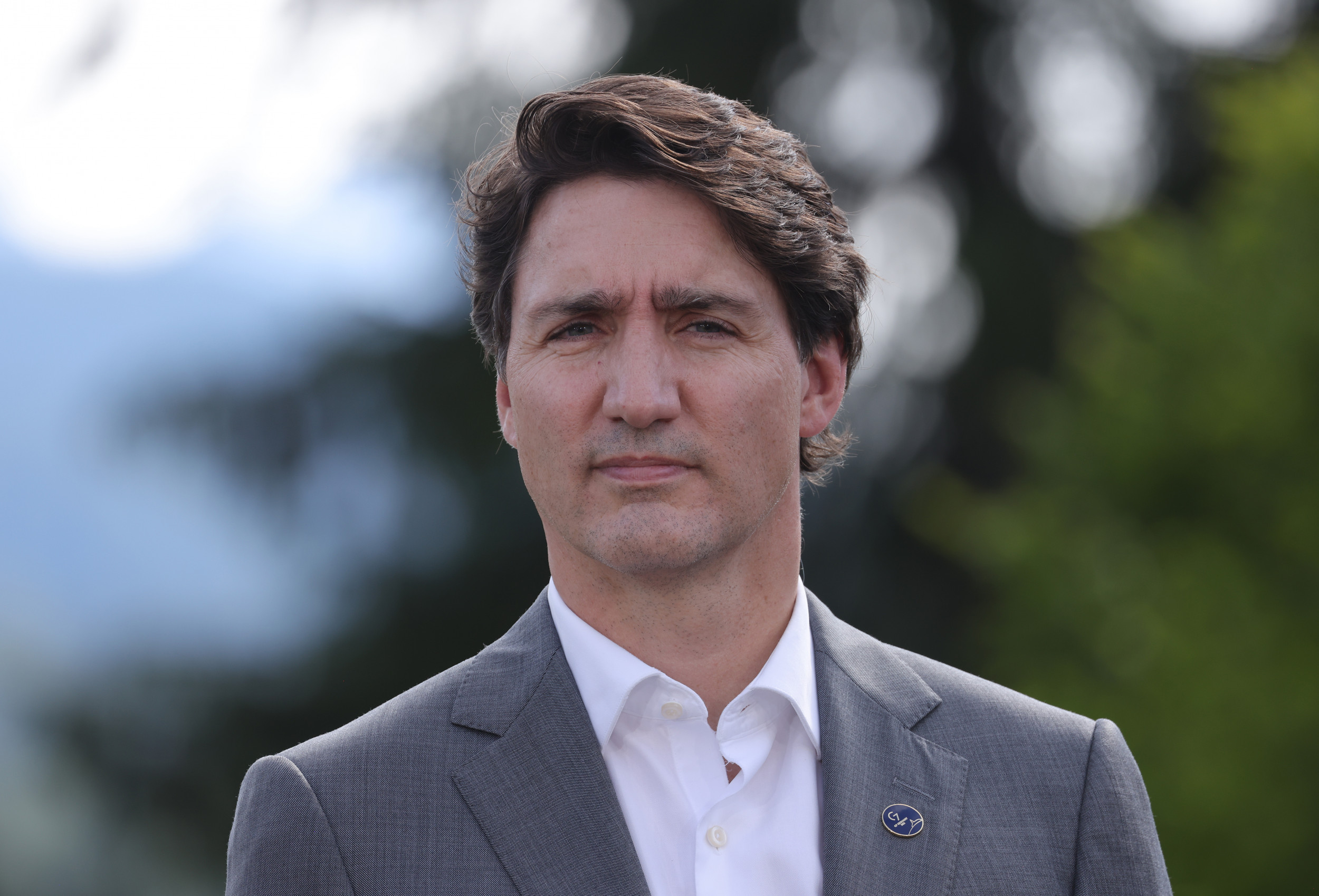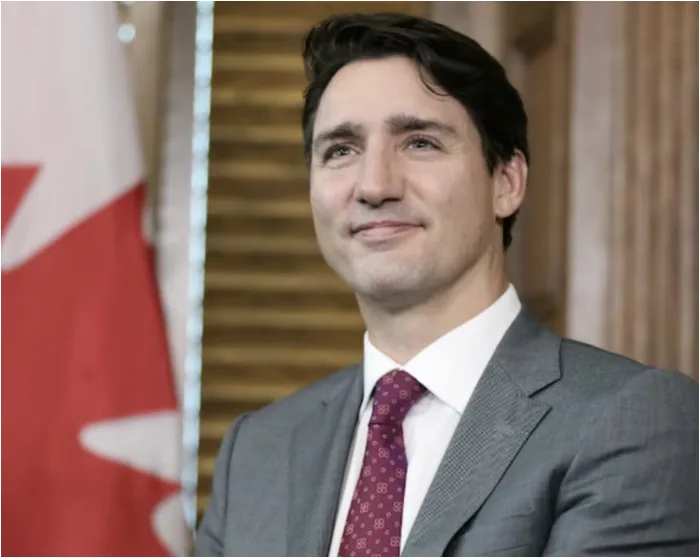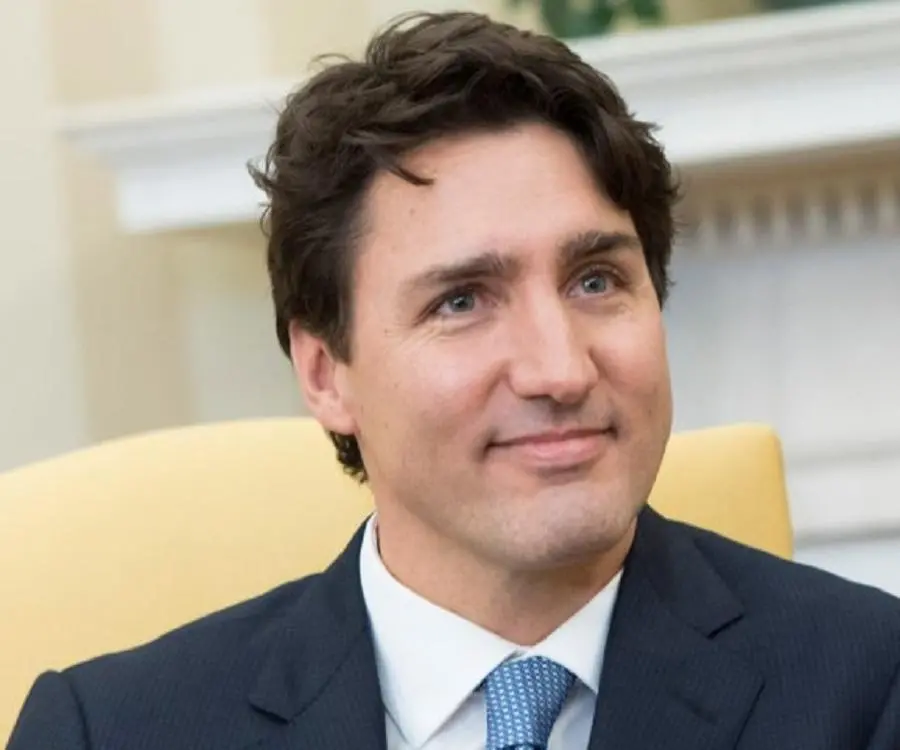Just How Old Is Justin Trudeau Now? (2024)
How old is Justin Trudeau, the current Prime Minister of Canada? The answer, surprisingly, is more complex than a simple number, as his age reflects not just the passage of time, but also a life steeped in politics, public service, and the enduring legacy of his father, Pierre Elliott Trudeau. To truly understand Justin Trudeau, one must consider not just his birthdate, but the experiences, influences, and trajectory that have shaped him into the leader he is today.
Born on December 25, 1971, in Ottawa, Ontario, Justin Trudeau entered the world during a time of considerable political prominence for his family. His father, Pierre Elliott Trudeau, was already a well-known figure, having served as Prime Minister of Canada since 1968. The younger Trudeau grew up in the spotlight, a reality that undoubtedly influenced his future path. Raised in both Ottawa and Montreal, he experienced the bilingual and multicultural fabric of Canada from a young age, a characteristic that would later become a cornerstone of his political platform. His early life was marked by academic pursuits, including a Bachelor of Arts degree from McGill University in 1994, and a Bachelor of Education from the University of British Columbia in 2000. Before entering politics, Trudeau worked as a teacher in Vancouver, a profession that provided him with a direct connection to the everyday lives of Canadians, and a chance to hone his communication skills.
| Category | Details |
|---|---|
| Full Name | Justin Pierre James Trudeau |
| Date of Birth | December 25, 1971 |
| Place of Birth | Ottawa, Ontario, Canada |
| Age (as of November 21, 2024) | 52 years old |
| Political Party | Liberal Party of Canada |
| Current Position | Prime Minister of Canada |
| Education | Bachelor of Arts (McGill University), Bachelor of Education (University of British Columbia) |
| Previous Occupation | Teacher |
| Spouse | Sophie Grgoire Trudeau (separated) |
| Children | 3 |
| Website (Reference) | Prime Minister of Canada Official Website |
The question of Justin Trudeau's age, therefore, opens a window into a multifaceted individual. The answer of 52 as of late 2024, while numerically precise, doesn't fully capture the essence of a man who has navigated the corridors of power, the complexities of familial legacy, and the ever-shifting landscape of Canadian politics. His youth, compared to some political contemporaries, has often been a subject of discussion, particularly in the context of his leadership style and policy initiatives. However, the years he has spent in the public sphere, the experiences gained through various roles, and the lessons learned from his father's political career, have undoubtedly shaped him into a seasoned leader capable of making complex decisions.
Beyond the simple calculation of years, the age of a political figure can also be viewed through the lens of historical context. Trudeau's tenure as Prime Minister has coincided with significant global events, including the rise of populism, the COVID-19 pandemic, and ongoing geopolitical instability. Each of these events has tested his leadership and demanded adaptability and a comprehensive understanding of the world's challenges. He has been at the forefront of Canada's responses to these crises, from implementing economic stimulus packages to advocating for international cooperation. These experiences have further shaped his perspective, adding depth and breadth to his understanding of governance.
Trudeau's political journey began in 2008 when he was elected as the Member of Parliament for the riding of Papineau in Montreal. He quickly ascended within the Liberal Party ranks, demonstrating an aptitude for communication and a strong connection with the Canadian electorate. His charisma and ability to articulate a vision of a progressive and inclusive Canada helped revitalize the Liberal Party after years of decline. He became leader of the Liberal Party in 2013, and in 2015, led the party to a stunning majority government victory, ending nearly a decade of Conservative rule. This victory underscored his ability to connect with voters across the country and build a broad coalition of support. The election of 2015 saw Trudeau's rise to power; the promise of real change resonated strongly with a population eager for a fresh approach to governance.
The policies and initiatives undertaken by Trudeau's government have reflected his age and the political climate in which he operates. Climate change, social justice, and economic inequality have been prominent themes throughout his tenure. His government has implemented carbon pricing, invested in green infrastructure, and promoted policies aimed at reducing greenhouse gas emissions. He has also taken a strong stance on social issues, championing LGBTQ+ rights, and advocating for gender equality. Furthermore, his government has focused on investing in social programs, such as affordable housing and childcare, to address income inequality and improve the quality of life for Canadians. These policy decisions reflect not only his personal values, but also his understanding of the priorities of a younger generation and the need to address long-term societal challenges.
The role of family in Trudeau's life, and by extension, his political career, cannot be understated. As the son of Pierre Elliott Trudeau, he carries the weight of a legacy that looms large in Canadian history. His father served as Prime Minister for over fifteen years, leaving an indelible mark on the country's political landscape. Justin Trudeau has often been compared to his father, both in terms of his political style and his policy positions. This comparison has at times proven to be advantageous, providing him with name recognition and a pre-established connection with voters. However, it has also presented challenges, as he has had to carve out his own identity and demonstrate his own distinct leadership qualities. The weight of his fathers legacy has often been present; the comparisons are often drawn. But Trudeau has successfully shaped his own path, adapting to a new era.
His approach to international relations, particularly during his time as Prime Minister, also offers insight into his age and perspective. He has cultivated strong relationships with international partners, advocating for multilateralism and international cooperation. He has been a vocal supporter of international organizations, such as the United Nations, and has actively participated in global initiatives to address climate change, promote human rights, and foster economic development. His commitment to diplomacy and his willingness to engage with different viewpoints reflect his belief in the importance of global collaboration and his desire to build a more peaceful and prosperous world. This approach has been particularly evident in his handling of trade negotiations, international conflicts, and issues related to global health.
Over the course of his political career, Trudeau has faced numerous challenges and criticisms. These range from questions about his leadership style to scrutiny of his policy decisions. He has been criticized for perceived inconsistencies, for his handling of certain crises, and for his approach to economic policy. However, he has also demonstrated resilience and a willingness to adapt to evolving circumstances. He has faced public opinion shifts and navigated the complexities of a diverse political landscape. His ability to weather these storms speaks to his experience and his commitment to his political vision. The controversies and criticisms he has faced have often been seen as inevitable aspects of modern political life.
The significance of Justin Trudeau's age extends beyond his current position as Prime Minister. It is also relevant to his future prospects and the potential impact he may have on Canadian politics for years to come. His youth allows for a longer time horizon within which to pursue his policy goals and shape the future of the country. His ability to connect with younger generations of voters and build coalitions across diverse demographics is a valuable asset. The coming years will undoubtedly determine the full extent of his political legacy. The policies implemented now will shape his impact on the country, and the world.
The impact of his years in the public sphere and his ability to adapt to changing circumstances have been evident. Trudeau's age, therefore, is not simply a number; it is a marker of his journey, an indicator of his experience, and a testament to his ability to lead. It is the cornerstone of his leadership style and the catalyst for his understanding of modern society. To ask "how old is Justin Trudeau" is ultimately to delve into a far more intricate storythe story of a man who is not just a product of his age, but also a reflection of the era he governs in.
In conclusion, the question "how old is Justin Trudeau" is not only about knowing his current age but also about understanding the wealth of experience he has gained throughout his life. From his upbringing to his political career, every facet of his life provides insights into the person he is today. The question allows us to appreciate the nuances of his leadership and the impact he is making on Canada and the world. His story is one of evolution, adaptation, and a deep commitment to the principles of his nation. It is a story that continues to unfold, and with each passing year, provides further details to his legacy.



